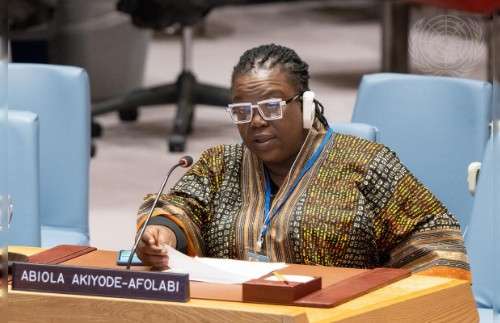A man has been sentenced to five years jail after a woman he accused of using witchcraft was raped and murdered by a mob.
Sue Ahearn and Stefan Armbruster/Melbourne and Brisbane

A landmark court conviction in Papua New Guinea related to the murder of a mother-of-five accused of sorcery is being hailed as a major victory in the fight to stop such attacks and murders.
For the first time, a court has found a person guilty of accusing someone of sorcery under legislation, known as the Glasman Act, which was passed by the PNG Parliament in 2022.
Belief in magic or the supernatural is used to explain misfortunes of various kinds in PNG, particularly death and sickness, with Sorcery Accusation Related Violence (SARV) unchecked throughout the country.
While sorcery claims can be leveled at both men and women, most of the accused victims are females, who are often gang raped, beaten, tortured externally and internally with hot iron bars before being killed and butchered.
Pope Francis during his visit to PNG last year alluded to the issue, calling for people “to drive out fear, superstition and magic from people’s hearts, to put an end to destructive behaviors such as violence.”
On March 12, the National Court in Bulolo, Morobe Province, sentenced James Mon to five years imprisonment for accusing an innocent woman, 39-year-old Lorna Nico, of sorcery.
Nico was chased by a group of local men who caught her, and beat her to death in front of her 8-year-old daughter in August 2023. Mon was not present when Nico was killed and hacked to pieces with machetes.
Under the new Act, the accuser does not need to have participated in the physical harm of another, nor need to be present when the victim is tortured or killed.
The conviction of Mon is significant because it’s seen as a major step in getting justice for victims of SARV by those working to stop the growing practice.
An estimated 700 people are tortured or killed each year in the Pacific nation due to sorcery accusations, based on data compiled by the non-profit organization PNG Tribal Foundation.

“These people called glasman and glasmeris come into a community and say, ‘I’ve gotten special training and I can see who is a sorcerer in your community. So, if you pay me, I will identify them so that you can handle them’,” PNG Tribal Foundation founder and president Gary Bustin told BenarNews.
Seven perpetrators have been convicted under the Glasman Act in the past two years, with sentences ranging from 5 to 25 years in prison, but Mon’s conviction is the first for accusing someone of being a sorcerer, Bustin said.
Since December alone, the foundation has recorded a further 87 people charged with offenses, six under the glassmen or glassmeri provisions and the rest for related offenses, and rescued 560 victims associated with these cases.
Bustin said the breakdown of traditional cultural and societal structures in PNG had led to a vacuum, allowing the exploitation of sorcery beliefs.
“It may be revenge, it may be land, it may be jealousy, whatever the case, but it’s become a coverall for whoever you want to harm,” he said.

He acknowledged the bravery of police woman, Detective Senior Constable Regina Patmo, for prosecuting the Mon case despite receiving threats.
Patmo told BenarNews she hoped the case set an example for the whole country, especially for accusers.
“Sorcery Accusation Related Violence happens across the country and my hope is that because of this case judges will give stiff penalties,” Patmo said. “We need more awareness about this case so people will be educated on the penalty for accusing someone of sorcery.”
Last month Prime Minister James Marape condemned all forms of violence against women, including sorcery related killings, as an affront to traditional PNG culture.
“We must work to eliminate these harmful practices before they become em-bedded in future generations. This requires educating our young people, empowering our women, and ensuring that men take responsibility for their actions,” Marape told an International Women’s Day event on March 11.
The PNG Tribunal Foundation worked with East Sepik Governor Allan Bird, who in 2022 sponsored the glasman private members bill. The new law criminalizes the act of accusing someone of sorcery, even if no physical harm occurs.
“The youngest person accused of sorcery, was raped and killed, was a five-year-old girl. It happened under our watch in our country,” Bird told the PNG Parliament on March 18 after Mon’s conviction.
“Had we not passed the Bill, that man would have walked out free, currently before the courts there are 86 glasman.”

PNG law from 1971 until 2013 criminalized sorcery and making false allegations, but also accepted witchcraft as a legitimate defense in court if the victim was accused of using it.
The Sorcery Act was repealed in 2013 after the murder of Kerpari Leniata in Mount Hagen, who was accused after the death of a young boy.
Media reports and photos shared on social media showed the 20-year-old new mother being stripped, doused in gasoline and burned to death on a garbage pile on busy street corner.
No-one was charged despite ample evidence showing the men who tortured, sexually assaulted, and immolated her in the presence of police officers.
The incident caused outrage domestically and international condemnation.
The glasman law now makes the use, attempted use or threats to use a glasman or glasmeri illegal, with up to 10 years in jail and fines of up to 10,000PGK (US$2646).
Speaking in parliament, Bird said still more needed to be done to protect women and girls.
“There were 18,000 cases of violence against women and children, but only 200 were prosecuted annually,” he said.
“One of the things that came through from all the consultations that we had with the public is that the main cause of perpetrators being encouraged to continue to perpetuate violence is because we are a violent, lawless nation.”
Tribal fighting, massacres and human rights abuses are commonplace in Papua New Guinea, with under resourced police unable to enforce the law in some parts of the country.
Mon’s is one of the very few sorcery-related cases that have ever made it to court.
Statistics on the actual number of cases are unreliable or non-existent, with no credible census conducted in two decades and the country’s challenging geography often making investigation difficult.
A 20-year study by researchers Anton Luyz and Miranda Forsyth in 2021 found 98% of cases, 1,440 of torture and 600 killings, were not prosecuted, and most of those that were involved a male victim and a charge of murder.
The United Nations says an average of 388 cases of SARV are reported across four Highlands provinces every year. But it says fear of retaliation means the true number of victims is likely far higher.
Researchers say it is a commonly held belief that events like death, sickness and misfortune are caused by people possessed by a spirit, which goes out to steal and eat people’s hearts.
Copyright ©2015-2024, BenarNews. Used with the permission of BenarNews.















